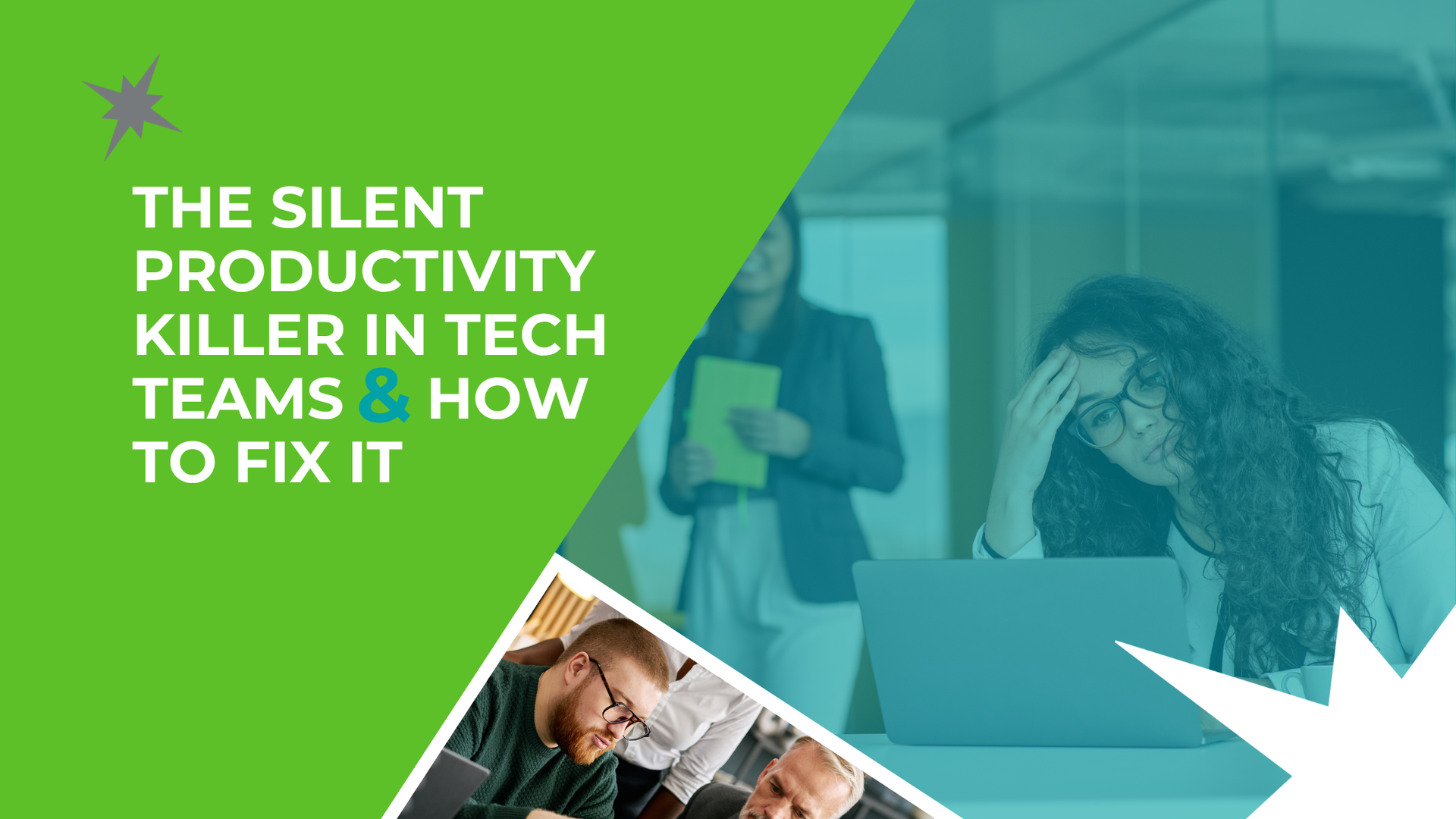News & Insights
< Back to Blogs
Interview Tips for Tech Professionals

The key to a successful interview is preparation. Researching the company, understanding the role and offering polished responses shows initiative, enthusiasm and a keen interest in the job. Use the interview tips below to impress your potential employer during that vital first meeting. Not all tech interviews will follow the same procedure, so all you can do is make sure you are prepared.
Research Company Information
Researching the company will help you to better understand where your role fits and your knowledge will boost your credibility with the interviewer. This is particularly important in an IT role, where your knowledge of the business' needs could really set you apart. The company website, blog, annual report, newsletters and media releases can provide you with valuable information on the company’s key products and services, target markets, recent events, structure, culture and future direction.
Your interview preparation should also include reading trade publications and newspaper/magazine articles. These will give you an insight into the company’s reputation, major competitors and wider industry challenges.
If you have the name of the interviewer, it may also be worth taking a look at their LinkedIn profile for some additional insight into their career path.
Review Role Details
Carefully examine all the information you have about the role, including the job advertisement and position description. This information is useful for anticipating what you are likely to be asked so that you can prepare relevant responses beforehand. To set you apart from other candidates, you can also use this information to form intelligent questions to ask at the conclusion of the interview.
Practice Your Responses
Rehearsing answers to the questions you are likely to be asked is the most critical step in interview preparation. For each potential question, identify practical examples that show how you responded to the task/situation and specify the positive outcome. Rehearse your responses with a friend to gain feedback on whether you are matching your skills, experience and personal attributes to the requirements of the job in a coherent and succinct way.
Know Your Strengths
The key to presenting yourself in the best possible light is to know your key strengths and be able to communicate them confidently and convincingly. The interview is your opportunity to ‘sell’ yourself, so be sure to have prepared concrete examples of what makes you special. Revise the key achievements from your resume so they are top of mind when responding to questions, and use them to demonstrate how you can meet the needs of the employer better than any other applicant.
Here Are Some Common Interview Questions To Get You Thinking:
- Why do you want this job?
- Why should we hire you?
- What do you know about our company?
- Why do you want to work for us?
- Describe a time when you had to use logic and good judgement to solve a problem
- Tell me about a time when you had to cope with a stressful situation
- Give me an example of a time when you had to make a split second decision
Interview Basics
Most of us are aware of the basics when it comes to attending an interview, but it is so important to put these into place. If you get them wrong (or don’t do them at all) and it comes down to you and another candidate with similar skills and experience, they could cost you your dream job:

Interview Tips
- Read your resume thoroughly before the interview
- Plan your trip to be on time
- Arrive 5 to 10 minutes early and definitely not late
- Dress code – business suit/dress (tights or stockings for the ladies)
- Clean and tidy appearance
- Grooming is important – remove any piercings
- Turn off your mobile/electronic devices
- Don’t chew gum – no food or drink
- No sunglasses
- Stand and greet
- Firm handshake
- Good eye contact
- Smile
Remember, First Impressions Count
Some other things to remember during your interview:
Do’s
- Be specific with your answers
- Use examples from past experiences
- Listen to the questions before answering
- Talk “I” not “we”
- Think before speaking
- If you need clarification – ask for it
- Be authentic
- Conclude by telling them you’re keen (if you are), ask about the next step, thank them for their time and call your recruiter immediately!
Don’ts
- Ask about rates/salary
- Ask about trivial things, e.g. parking, lunch hour, holidays – ask your recruitment consultant
- Lie
- Leave without knowing if you want the job
- Ask for direct feedback on your interview performance
- Criticize your current/former employer(s)
Interview Questions
It’s the interview moment every jobseeker dreads. Just when you thought you had them eating out of the palm of your hand, you’re hit with a question straight out of left field.
While there’s no way of predicting exactly what you’ll be asked at an interview, these answers to some of the more challenging questions asked by prospective employers might just help you out of a tight spot:
Why are you leaving your current job?
If your reason for changing jobs is because of a personality conflict with your manager or colleagues, it’s best not to highlight the situation as it may raise red flags. Instead, focus on talking about how you are looking for a new challenge, how excited you are about this new opportunity, and how you believe you are very well suited to the position.
How do you respond to taking direction from superiors?
Here, you need to emphasise your ability to work as part of a team. Talk briefly about how all teams need to take direction from a manager and give a strong example of how you have done this successfully in the past.
How well do you handle criticism?
Here, you get to show your human side by talking about how we all make mistakes, and how we can all learn from constructive and positive criticism. If they ask for an example, talk about some constructive feedback you’ve received about an area that is not vital for the job, and how you worked to overcome it.
What motivates you?
This is definitely not where you talk about ‘money’ and ‘fast cars’. It might be working as part of a high-performance team, being immersed in important and meaningful projects, or seeing how much of a difference your contribution makes to customers or your business.
How long would it take before you make an impact if you started today?
You can always say you’d hope to contribute from day one, but you also need to be realistic and explain that it might take a couple of months before you fully understand the inner workings of the company to a sufficient extent that you could make a noticeable impact.
Have you attended other interviews?
This is a great question which you can really turn to your advantage. A candidate in demand will naturally appear more appealing to any hiring manager. So, say you are actively looking for a new position but don’t give them the impression you’re more interested in landing another job than the one you’re being interviewed for.
What do you know about the company?
This is where your pre-interview research pays off. Outline briefly what you’ve learned about the company and appear keen to hear more.
What can you offer us that the next candidate can’t?
This is where you get to show off what you’ve got to offer. Talk about your achievements to date and the areas of the business you feel you could work with and where you feel you can make a positive impact.
We’re concerned you may be a little overqualified for the position, how do you feel about it?
Explain that you’re eager to establish yourself within the organisation for the long-term. You can say that you believe your experience will enable you to make significant contributions to the company from the outset and that ultimately you feel very well suited to the position on offer.
Is there any aspect of this job that you don’t find interesting?
Less is definitely more when answering this one. It’s a good idea to say that you’ve read through the job spec thoroughly, and at this point you are excited about all aspects of the role and looking forward to sinking your teeth into the new challenge. You could also demonstrate maturity by conceding that it’s natural for things to come up in the future that you may find less interesting than others, but this is the nature of any job.
Your Questions (Make Them Count)
Preparing relevant, insightful questions to ask at the interview shows initiative and your enthusiasm for the role on offer. Furthermore, it allows you to demonstrate your knowledge and research; a tactic guaranteed to impress any interviewer. Asking questions is also an important way to assess whether the role and company is a good fit for you, and will help you to make an informed decision if an offer is made. Below are some examples of general questions to ask. Tailor your selection around the aspects of the job that concerns you most. Remember to only ask questions that you cannot research the answer to yourself, and listen carefully to the information given during the interview in case your questions are answered.
The Role
- How has the position become available?
- How is performance measured and how often is it reviewed?
- What long-term career opportunities are available and how do you support the upskilling of staff?
- What are the key challenges of the role, particularly in the first six months?
- How would you describe a typical day in this position?
The Team
- How many people are in my team and what are their roles?
- How does the team fit into the organisation as a whole?
- How would you describe the culture of the team?
- With whom will I be working most closely?
- What are the company’s plans for this team over the next few years?
The Manager
- How would you describe your management style?
- Can you tell me about your background and your key strengths?
- What do you like most about working here?
- What are the qualities you do and don’t like to see in your team members?
The Company
- How would you describe the culture of the company?
- What type of person is successful in this company?
- What is the leadership style of the upper management team?
- I read about (name issue) in (name research/source). What other key issues is the company facing at the moment?
- What are the major plans for the company in the next five years?
Share This Article
Recent Articles

Filter By Category
Subscribe to our News & Advice












